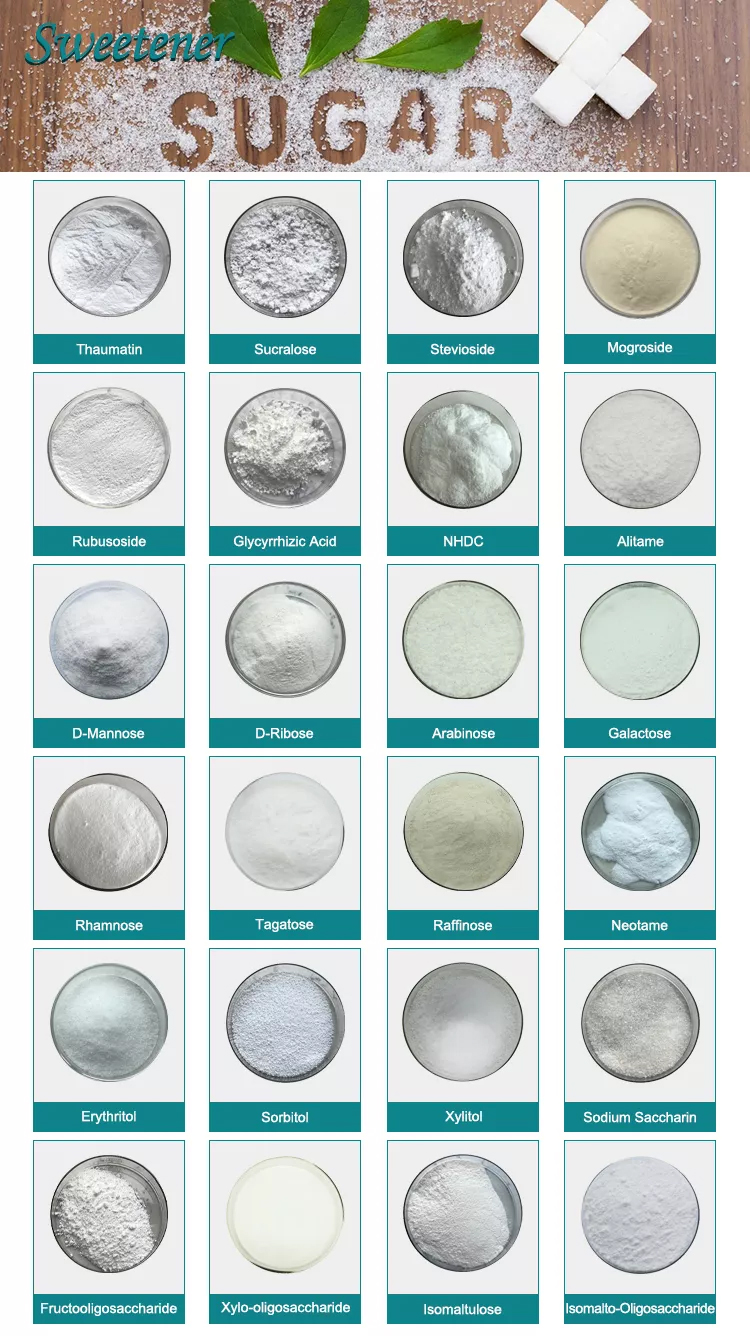Neotame is a no-calorie artificial sweetener that is chemically similar to aspartame. It is used as a sugar substitute in various food and beverage products. Neotame is approximately 7,000 to 13,000 times sweeter than sucrose (table sugar), so only small amounts are needed to achieve the desired level of sweetness.
Effectiveness of Neotame:
Neotame is effective as a sugar substitute in terms of providing sweetness without adding calories. It is commonly used in a variety of low-calorie and sugar-free products, including beverages, desserts, and snacks.

Side Effects of Neotame:
The U.S. Food and Drug Administration (FDA) has determined that neotame is safe for consumption when used as a general-purpose sweetener. It undergoes thorough testing for safety, and the Acceptable Daily Intake (ADI) has been established. However, individuals with phenylketonuria (PKU), a rare genetic disorder, should avoid neotame, as it contains phenylalanine, an amino acid that can be harmful to individuals with PKU.
In general, neotame is considered safe for the general population when consumed within recommended limits. Like other artificial sweeteners, some people may be sensitive to neotame, and there have been reports of individuals experiencing headaches or other mild symptoms after consuming products containing neotame. However, such reactions are relatively rare.
Special Considerations of Neotame:
1.Phenylketonuria (PKU): As mentioned earlier, individuals with PKU need to be cautious about consuming neotame due to its phenylalanine content. PKU is a rare genetic disorder in which the body cannot break down phenylalanine properly, leading to its accumulation in the blood.

2.Cooking and Baking: Neotame is heat-stable, which means it can be used in cooking and baking without losing its sweetness. It does not break down at high temperatures, making it suitable for a variety of culinary applications.
3.Labeling: Food products containing neotame are required to include it in the ingredient list on the label, and products should be labeled as “phenylalanine source” for individuals with PKU.
4.Acceptable Daily Intake (ADI): The ADI for neotame is established by regulatory authorities to specify the amount that can be safely consumed daily over a person’s lifetime. Staying within the ADI helps ensure the safety of neotame consumption.
As with any food additive, it’s essential for individuals to be mindful of their overall diet and consumption patterns. If someone has concerns or experiences adverse reactions, they should consult with a healthcare professional.
